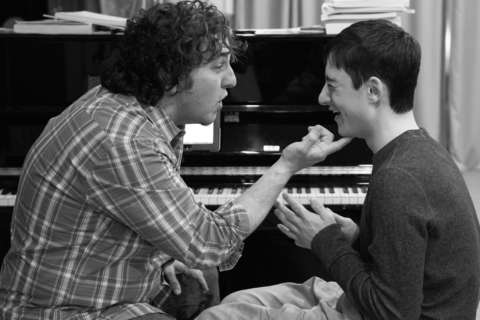WASHINGTON — Every aspect of one’s lifestyle can have a profound effect on a person’s health — from diet, to exercise, to sleep, even socialization. And now, more researchers are studying how what you listen to can impact your well-being.
“Music is essentially part of us being human,” said Emmeline Edwards, director of the Extramural Research Division at the National Center for Complementary and Integrative Health at the National Institutes of Health.
“Music moves us, we enjoy music, and participation in music — whether you are just listening to it or whether you’re actually playing an instrument — really has been shown to impact a lot of the auditory/sensory system, your cognitive system and your emotional system.”
Edwards is one of the authors on a summary report recently published in the journal “Neuron.” The report details a workshop, convened in D.C., that brought together scientists, musicians and industry leaders.
According to Edwards, the idea behind the medical and musical collaboration came about in a typical Washington way: at a dinner party where Supreme Court Justices Anthony Kennedy, Ruth Bader Ginsburg and Antonin Scalia were present. Also in attendance was NIH Director Francis Collins and opera singer and Kennedy Center adviser Renée Fleming. The two hit it off on the topic of music and health and, long story short, the Sound Health initiative was born.
In 2017, some 25 researchers from the U.S., Canada and Europe met to discuss what’s known and unknown in the field of music and health, as well as potential applications.
Edwards said future research could prove promising for breakthroughs in childhood, adult and senior health care.
“Children, at a very early age, really respond to music, almost automatically — they respond to harmony, they respond to rhythm — and so there is a growing body of research that’s showing that music can actually impact brain development,” she said, adding that music training or music exposure can increase the capacity of a child’s brain for nonmusical skills, such as language, attention and emotional regulation.
In the field of pediatrics, researchers are closely examining music’s impact on autism and pain. For adults, Edwards said exposure to music results in structural changes to the brain.
“The thickness of the cortex is different,” she said, comparing longtime musicians to non-musicians.
And for aging adults with neurological disorders or dementia, music has shown some promise in sustaining the functional capacity of the brain or restoring lost function.
“So I think across the life span, we can say that there is an impact on how the brain is actually creating music, perceiving music, and also how the brain can be changed by music,” Edwards said.
Currently, music as a form of therapy is used in a number of different settings — from clinics, to schools and hospice centers — but Edwards said more basic research is needed “to truly understand what elements of music are actually changing the brain.”
“Rhythm, pitch, harmony — we don’t have enough information to really understand the basic science of how music impacts the brain,” she added.







